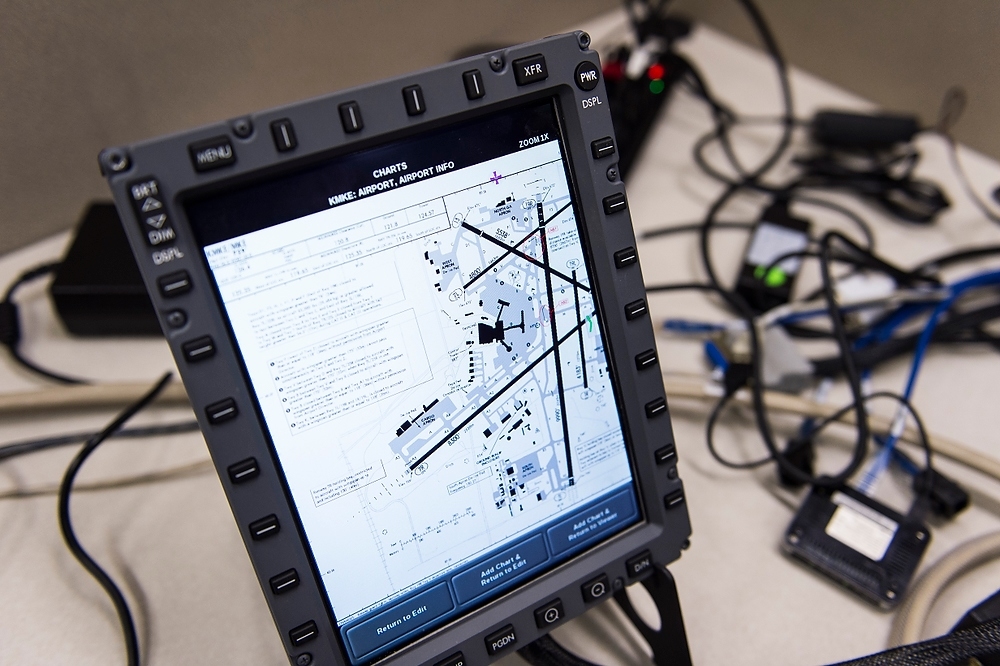Company’s collaborations with UW-Madison lead to more innovations

An aircraft system display known as NEXIS is pictured at Astronautics Corporation of America, an aviation instrument manufacturer in Milwaukee.
Less than a month after a Malaysia Airlines plane disappeared in March 2014, Astronautics experts were talking to the Federal Aviation Administration about the question that was everywhere: “How can we lose a Boeing 777 when we can track a smartphone?”
To many people, that question was rhetorical. But not to Astronautics, whose engineers envisioned a system that will be able to transmit a minute-by-minute account of an aircraft’s location and any problems that have developed.
The proposed solution, known as the NEXIS flight intelligence system, is based on technology that Astronautics had started developing long before the Malaysia crash. It will harness navigation, airplane status and collision avoidance instruments into a computer network to allow many of the plane’s systems to communicate.
“We call it an on-board server,” says Stephen DeGuire, a consultant in technology development. “It’s a new class of device, with an open architecture, more processor power and more memory.” By feeding information throughout the cockpit, NEXIS will streamline operations. Instead of having a maintenance person board the plane to load navigation data, it can be entered into NEXIS and checked for errors or malware. “This can be the system watchdog,” says DeGuire.
NEXIS could play a role in monitoring a Malaysia-style airborne tragedy, DeGuire adds. “We can transmit information to ground stations or satellites so the airline or national transportation authorities could see a problem in real time: ‘Pay particular attention! This flight is deviating from its flight path, or somebody turned off something they should not have.'”
Networking functions raises computer-security issues, DeGuire concedes. “Because we make this equipment right here, we understand it to a level that only an original equipment manufacturer can understand. And we are looking to use the computer science brainpower in Madison to ensure secure operation.”
Another collaboration with UW–Madison is helping the Astronautics Technology Center in Madison develop a revolutionary magnetic refrigerator, in consultation with mechanical engineering professor Greg Nellis. The refrigerator is quiet and avoids refrigerant gases that threaten the ozone layer and climate, says center director Steven Russek. “When it reaches full maturity, it will be up to 35 percent more energy efficient than conventional technology.”
—David Tenenbaum




